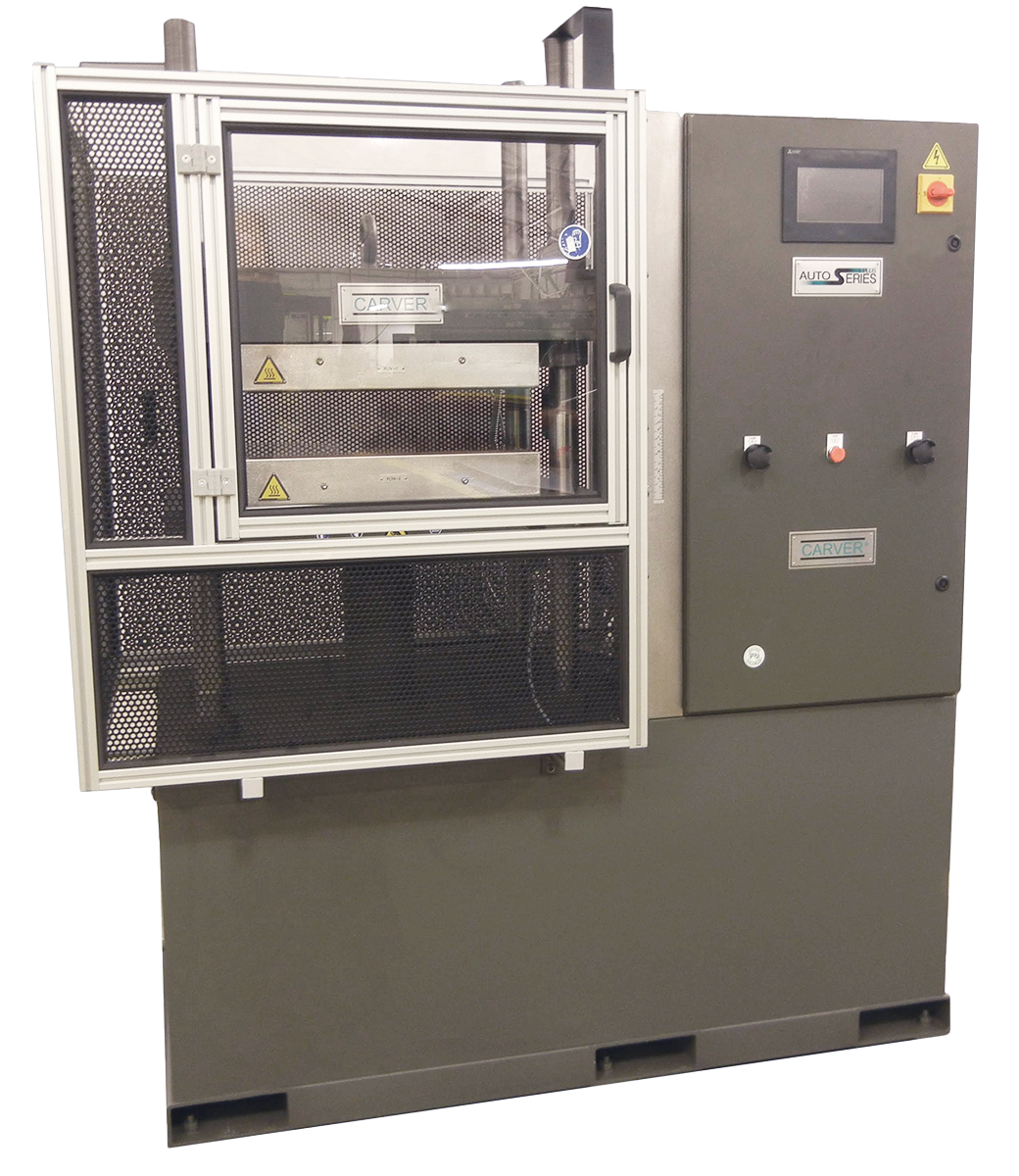In materials testing, ASTM standards are internationally applied to verify that the measurement of physical properties of materials are representative and similar to each other.

Image Credit: Carver
The properties of rubber and plastics are very diverse. ASTM standards provide a crucial role in confirming the validity of the information used to make decisions about materials in industries that utilize or manufacture rubber and plastics.
This article outlines how ASTM standards are employed for the evaluation of rubber and plastics, and how presses make sure that these standards are strictly followed.
Formerly called the American Society for Testing and Materials, ASTM International has the role of defining more than 12,500 technical standards created to maximize product safety and quality on an international scale.1
More than 140 technical standards writing committees contribute to the definition of ASTM standards, with its members residing in over 140 distinct countries.
These standards are of global significance. Over half of the ASTM standards have been used as the foundation of national standards in the USA, or are referred to in the regulations of countries outside the USA.
The range of ASTM International’s work includes the maintenance and definition of a large number of standards for mechanical testing.2 The scope of ASTM applications is very wide, and a numbered ASTM National Standard is allocated to each application.
Standards are crucially important in testing. Organizations in the USA and across the globe depend on these standards to confirm that their methods for mechanical testing are thorough, precise, and comparable to each other.
Hydraulic presses have a critical role to play in establishing these standards: as they allow a controlled force to be applied to various components and materials, meaning presses are the true workhorses of the physical testing domain.
Presses are also frequently utilized in ASTM standards to create rubber and plastic test samples. By utilizing high-precision and high-performance presses, testing organizations and manufacturers can verify reliability and quality by following the ASTM standards.
The Importance of Mechanical Testing and Sample Preparation of Rubber and Plastics
In industries that utilize rubber and plastics, physical property testing is a key focus. There is a significant variation between the mechanical properties of plastics and rubbers, and the bulk of modern technology is fundamentally based on the exploitation of this variety of properties.
An endless amount of customer and industrial products depend on the chemical, mechanical, and electrical features of these materials. It is essential in product development to test rubber and plastics to the required standards.
The preparation of test samples provides one example of how an ASTM standard is applied in mechanical testing. For example, ASTM standard D4703 outlines how isotropic test-samples of thermoplastic materials can be compression-molded in a press.3
This ASTM standard describes how a sample can attain homogeneity, which is crucial when correctly measuring the properties of a material through force testing. A different standard, D3182, explains how molded rubber test samples can be manufactured in a reproducible manner within a press.
By following the standards such as D3182 and D4703, manufacturers can verify that their measurements of the mechanical properties of materials are comparable and precise, which helps them to make the most effective decisions when selecting materials for product development.
This means that ASTM standards are beneficial for essentially all material comparison, research and development, and quality control applications.
In line with the definitions outlined by ASTM standards, rubber and plastics are manufactured into a range of shapes for mechanical testing, including rubber sheets, test plaques, and bar specimens. All of these are commonly created by employing a press to enable accurate and consistent results.
Precision Presses for ASTM Testing
To adhere to ASTM standard specifications regarding presses, it is vital that the press employed can exert the necessary force with adequate precision, and also, where appropriate, to offer the requisite cooling or heating through platens that are thermally controlled.
Wabash MPI produces various high-performance presses that are specifically designed to be employed in the creation of test samples in line with ASTM standards.
The Genesis Series Hydraulic Compression Press Model G30H-12-ASTM, for example, has been specifically configured to process samples in adherence to the D4703 standard described above.4
As the platens can be thermally controlled, the press can meticulously control the rate of cooling in the samples as outlined in the D4703 specifications.
The G50H19RASTM is another Genesis model that is specially designed for the creation of molded rubber test samples in compliance with the ASTM specification D3182, also outlined above.5
This press includes fully guided features, an adjustable clamp force of 8 to 50 tons, and 19” x 19” platens, which are electrically heated with operating temperatures of up to 500 °F.
All Wabash presses are manufactured to thorough standards and can be modified with a host of accessories such as vacuum shrouds and larger heated platens.
Wabash MPI also offers an array of field services such as preventative maintenance, equipment calibration, and new equipment start-up. Wabash presses are now available with up to a 2500-ton capability.
References and Further Reading
- ASTM International - Standards Worldwide. Available at: https://www.astm.org/. (Accessed: 21st December 2019)
- Committee E28 on Mechanical Testing - Scope. Available at: https://www.astm.org/COMMIT/SCOPES/E28.htm. (Accessed: 21st December 2019)
- ASTM D4703 - 16 Standard Practice for Compression Molding Thermoplastic Materials into Test Specimens, Plaques, or Sheets. Available at: https://www.astm.org/Standards/D4703.htm. (Accessed: 21st December 2019)
- MPI, W. Genesis Press for Polyethylene Sample Preparation.
- Wabash MPI Hydraulic Presses for ASTM Test Sample Molding.

This information has been sourced, reviewed and adapted from materials provided by Wabash MPI.
For more information on this source, please visit Wabash MPI.